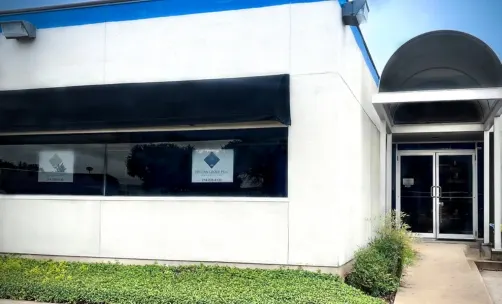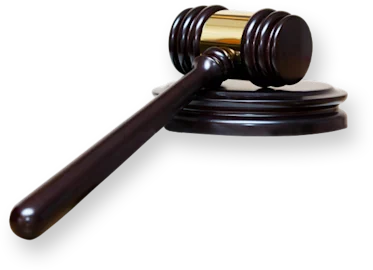Discover seamless Information about VAWA Petitions and VAWA Green Cards solutions with Din Law Group.
The Violence Against Women Act (VAWA) is a federal law that provides a path to a green card for certain victims of domestic violence without the need of a family sponsor. A VAWA lawyer may be able to help you gain what’s often called a “VAWA green card” if you’ve been abused by a green card holder or U.S. citizen close to you.
This guide to VAWA immigration benefits covers:
An experienced VAWA lawyer may even be able to help certain victims of domestic violence avoid removal. Din Law Group specializes in U.S. immigration law. We have the experience and skill to represent noncitizens seeking a VAWA green card or other domestic violence protection.
Google Review – Bhimi Rajesh

Don't risk your future by navigating immigration complexities and processes alone. Trust an immigration attorney for guidance.
Most noncitizens understand that family-based immigration is dependent on a U.S. family member’s sponsorship.
U.S. citizens and lawful permanent residents have the right to petition U.S Citizenship and Immigration Services (USCIS) for the immigrant visa of certain family members.
Unfortunately, when the sponsoring relative is an abuser, green cards are often held just out of reach for the immigrant-hopeful.
Domestic abusers are known for leveraging the hope of a green card against their immigrant family members to keep them quiet about the abuse.
VAWA green cards may be the only way to stay in the United States and escape the cycle of abuse for many victims of domestic violence.
An experienced VAWA lawyer can help noncitizens submit a VAWA petition to USCIS for an immigrant visa as a VAWA self-petitioner. When a victim of domestic violence submits a VAWA petition, the abuser does not even need to be informed.
If you are a noncitizen seeking a VAWA green card, you must meet certain requirements. Your immigration attorney can evaluate your individual circumstances in a confidential consultation, but let’s go over the basic requirements now. To petition USCIS so that you may be granted a VAWA green card, you first petition for an immigrant visa.
Once approved, you can gain a green card through a process known as Adjustment of Status.
If you are eligible to self-petition, your VAWA lawyer will help you file a VAWA petition using Form I-360 and apply for a VAWA green card using Form I-485.
Keep in mind, USCIS officials use their discretion when allowing a noncitizen to self-petition through VAWA. They will look at your positive factors and your individual situation. It’s important to be upfront with your VAWA attorney so that they can present the best case for your immigration including filing any necessary waiver of inadmissibility on your behalf.
VAWA self-petitioners are exempt from two of the grounds of inadmissibility listed in the Immigration and Nationality Act due to the nature of their circumstances.
The two grounds of inadmissibility that don’t pertain to VAWA petitioners are:
USCIS officials are more likely to approve your VAWA petition and your Adjustment of Status for a VAWA green card if you:
Immigrant visa petition processing times vary depending on many factors such as the complexity of the case and the number of petitions received by USCIS. VAWA lawyers typically see VAWA petitions take between two and three and a half years for processing.
The green card application, done through an Adjustment of Status, is typically submitted concurrently.
If a petitioner will lose legal status while waiting for a VAWA petition approval, a skilled immigration attorney may be able to convince the U.S. government to hold off on removal proceedings.
Your attorney may be able to file for a VAWA cancellation of removal, an often overlooked, but generous form of deportation relief. Please be upfront with your VAWA lawyer, so that they can best protect you during this stressful time.
What abuse qualifies a noncitizen for a VAWA green card?
It’s important to realize that the mental torment of immigration-related abuse can often be considered extreme cruelty. Typically, successful VAWA petitioners have experienced other forms of abuse including:
Yes! You must submit your VAWA petition within the two years following your divorce though.
Yes. Even though it’s called “the Violence Against Women Act,” victims may file a VAWA petition regardless of gender.
About one-quarter of VAWA petitions are approved by USCIS. Keep in mind though, that rate includes the VAWA petitions submitted with help from inexperienced legal advocates and lawyers who aren’t experienced with VAWA petitions. It also includes the petitions of victims who file on their own with no help at all. With a qualified VAWA lawyer, your chances of approval greatly increase.
If your children are under 21 years old and unmarried, your VAWA lawyer can include them in your VAWA petition.
After you submit your VAWA petition for an immigrant visa, USCIS may send you a “Notice of Prima Facie Determination” designating you as a “qualified alien” within four to six months. With this designation, you can apply for benefits like food stamps and Medicaid.
If you believe you may qualify for an immigrant visa through VAWA, please contact Din Law Group to request a free, confidential consultation.



At Din Law Group, PLLC, our practice is exclusively dedicated to immigration law. We have extensive experience assisting our clients with complex issues related to family-based immigration, asylum, naturalization, immigration bond hearings, and removal defense.
© Copyright 2025 | Immigrationlawdfw.com | All Rights Reserved | Immigration Law Firm Marketing Specialist MarketCrest